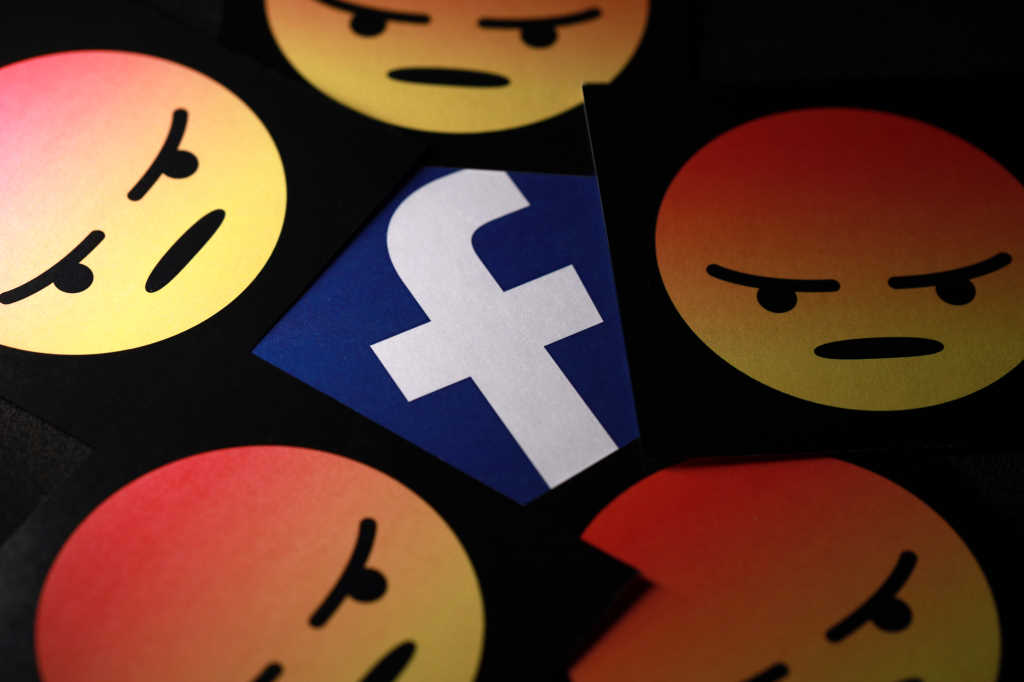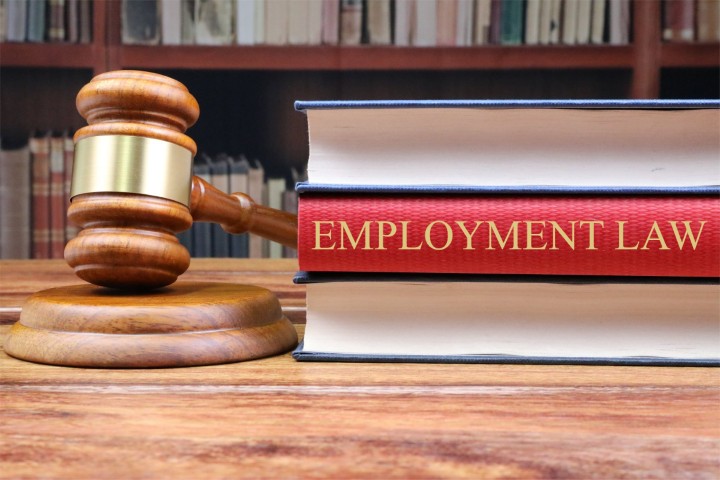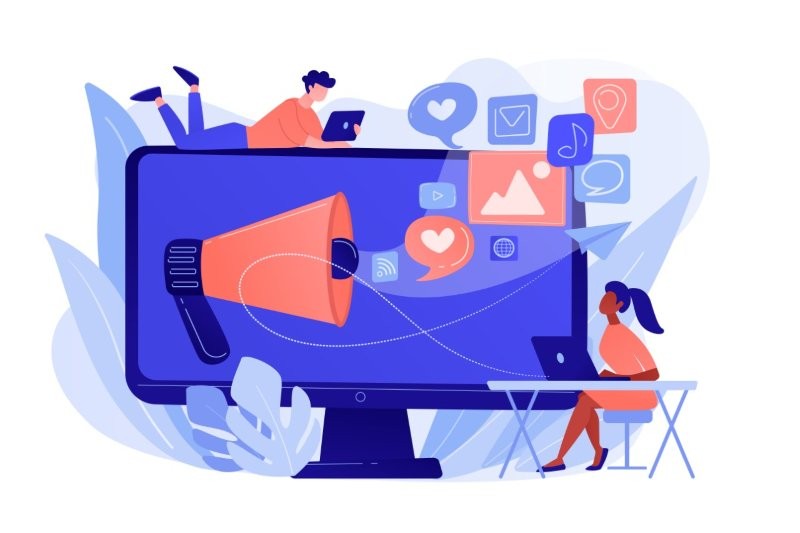Chalkeyes presents: When Facebook says ‘no’!
Frustrated by Facebook’s decision to stop her promoting her business-to-business-focused Facebook sites after she declined to share confidential proof-of-identity details with the social networking behemoth, Lesley Springall sought answers on what to do when you’re left in the lurch by Facebook.
Facebook is huge! It was a different era when a talented young geek called Mark Zuckerberg took on Harvard’s elite to set up an online, inter-university club site in 2004. Since then, the social networking site has become the most famous on the internet with a significant grip on the world’s population over the age of 12. The world’s third-most visited website, outranked only by Google and YouTube, it attracts more than 10 million paying advertisers who use a variety of Facebook-developed tools to reach their target audience from its more than 2.91 billion monthly active users.
As other businesses floundered during Covid-19, Facebook reaped the rewards of locked-down populations glued to their screens. Its revenues leapt 22% to just shy of US$86 billion in 2020, netting shareholders more than US$28 billion, up 58% on the year prior. Almost 100% of this revenue comes from its mainly small business advertisers who spend an average US$200 to US$800 a month on ads and boosting posts – the vast majority of whom do so without ever speaking to a Facebook employee.
The sheer size and scale of Facebook and its popularity is its biggest attraction and its biggest problem, says Antonia Sanda, Facebook’s head of communications in Australia, New Zealand and the Pacific. “Like many companies, we have sales teams that support some businesses, but our online tools help us scale and support the more than 10 million advertisers and 200 million businesses that use our apps and services.”
Why Facebook wants your ID
It’s Facebook’s reach and popularity that has led to it insisting on proof-of-identity from many of its advertisers. “We want these connections to be genuine and authentic… If you manage a page with a large audience you may be asked to confirm your identity and secure your account through a new Page Publishing Authorization process,” it says in one of its myriad online-help articles.
But it’s not just managers of ‘high-reach’ pages being targeted, it also randomly targets others, which is what is most likely to have happened in my case. Those targeted receive a pop-up note from an anonymous Facebook bot when they log onto to their page telling them to send over an official form of photo ID, such as a passport, driver’s license, or some other official government ID to prove who they are. If you don’t deliver in the time frame given, Facebook stops you boosting posts (as in my case), advertising or commenting or ‘liking’ something using your business name.
Facebook introduced the new authorisation measures following the Cambridge Analytica debacle, when the British consulting firm used an app to collect data from nearly 87 million Facebook profiles to try to influence the 2016 US election campaign. Writing in 2018, Rob Goldman and Alex Himel, Facebook’s then vice presidents of ads, local and pages, said, “We believe that when you visit a page or see an ad on Facebook it should be clear who it’s coming from… These (changes) are designed to increase transparency and accountability, as well as prevent election interference.”
The automated ID-request programme at Facebook promises that when you send in your ID it will be encrypted and stored securely. But given high profile security breaches, such as Cambridge Analytica’s, and Facebook’s regular appearance as one of the most impersonated brands in phishing-attack rankings, its understandable businesspeople may feel concerned, says Sanda.
Phishing, when a cybercriminal contacts you via Facebook, email or phone, hoping to make you part with personal information such as banking or credit card details and passwords, is another problem Facebook is attempting to thwart by asking you for ID information. It’s a lucrative steal for someone to hack your Facebook account as that gives them access to spam your followers through Facebook and possibly other Facebook-associated apps, including three of the most downloaded apps today - Messenger, WhatsApp and Instagram - all owned by Facebook. Even more confusing, one of the most common forms of Facebook phishing asks you to ‘confirm your account’ by instructing you to enter your account details on the cybercriminals’ often convincingly similar-to-Facebook-looking phishing page!
To counter these threats and assess the validity of its own advertisers, Facebook employs an increasing array of automated, artificial intelligence (AI) systems. “Our enforcement isn’t perfect, and we do get things wrong, as both humans and machines make mistakes” says Sanda. “We use human reviewers to improve and train our systems and, in some cases, review specific ads.” In the last few years, Facebook has employed several thousand reviewers to help tackle the issues, in addition to the 35,000 or so who were already employed on safety and security across the company, she says.
The system is constantly evolving, says Sanda, and if you know where to look you can appeal Facebook decisions to block you from boosting posts or advertising.
Getting help
But finding out how to do this is a problem in itself. In my case, I spent several hours over a few different days over a few months working through Facebook’s various help sites, both via my personal Facebook page and the pages I manage; all to no avail. Facebook’s heavily curated help pages are aimed at the most common questions it thinks you might ask. These primarily relate to things that will help Facebook grow, such as how to set up a page, boost a post, become an advertiser, adjust your settings and manage your personal privacy. The most common help request Facebook receives is from individuals wanting to remove a picture they don’t like of themselves from someone else’s site.
To avoid all the personal help pages, Sanda recommends businesspeople start with https://www.facebook.com/business/help. “In addition, any advertisers can get one to one support via a chat concierge or email channels by clicking ‘Support’ from our help resources page,” she says. In my experience, however, finding that one-to-one support is tricky, with the business help pages cleverly designed to send you in circles until you lose patience or run out of time and return to the business of, well, actually running your own business!
Given Facebook is dealing with about one third of the world’s population, it’s not surprising its help system is designed as an automated triage system. But with some dogged perseverance and patience, it is possible to track down a real person (first name only, no country given) to have an online conversation (see Facebook business support box). But even if you do track this elusive online concierge down, you might find that they too are not as useful as you’d hoped.
The end of the help line?
For me, I took so long dipping in and out of Facebook’s help maze, attempting to find answers to why I had to send over ID and what alternatives there were, that when I eventually did find a person to chat to online, they couldn’t help me. Apparently, I’d left it too long and that was that!
But surely that shouldn’t be possible? Surely a problem can always be fixed? Especially by one business attempting to pay another business money? Sources close to Facebook say it should. There should never be an end of the road for help, but no one was willing to go on the record to say it, as Facebook is simply too big for there not to be exceptions, they say.
“From a business perspective we try and offer email support and tech support and I do think in your particular case it didn’t work terribly well. At the end of the day, we want to help businesses,” says Sanda, adding Facebook is always looking at ways it can do things better. “A few years ago, we weren’t able to identify nudity; we’re pretty good at identifying nudity now. Machines do a lot of these jobs for us, but sometimes machines get it wrong too, so we’re constantly adding new people into the process as well.”
So if Facebook says ‘no’, just persevere with its help system until someone does help you. It might not get it right today, but given its size, the scale of its evolution might mean it gets it right tomorrow.
As for the business-to-business Facebook pages I manage, they have been restored to their working state. Strange thing is, I haven’t boosted one post since then. I have, however, done a lot more posting on the more business-to-business-focused LinkedIn, and that doesn’t cost me a cent!
--------------------------------------------------------------------------
FACEBOOK BUSINESS SUPPORT
For generic business problems, search the help pages at: www.facebook.com/business/help
For more specific help, login to your Facebook page or a page you manage, click the ‘down’ arrow at the top right of the screen, select ‘Help and support’, select ‘Report a problem’ and then ‘Something went wrong’ and send an onsite email and wait! You can check for replies through the same process, just click on, ‘Support inbox’ to see if someone at Facebook has got back.
To find a person (and this is really tricky), visit www.facebook.com/business/help and follow the links as best you can. According to various online forums, the option to chat with the elusive concierge doesn't present itself if Facebook has a high number of users trying to chat. Furthermore, the site‘s recent redesign to accompany its transition to the new Meta parent company seems to have done an excellent job of burying the live chat option completely.
If you do get through to the chat bot, however, and they say they can’t help, say ‘thanks’, close down that help thread and start the process all over again until you find someone who can help!
Good luck.
Lesley Springall is an Auckland-based business journalist and publisher of New Zealand’s leading ophthalmic trade publication NZ Optics and its online magazine sites eyeonoptics, and a reluctant business-to-business social media networker!


























